Alternatives to LPG
The benefits of using LPG include cost savings and it is far kinder to our carbon footprint than most other fuels. However, there are alternatives that have been specifically developed for each use.
- Alternatives for Camping
- Alternatives for BBQ's annd Domestic
- Alternatives for Motoring
For camping
 Camping is a popular pastime and, because of its portability, LPG (propane or butane) is often used for cooking, heating and lighting. But there are several different fuels which can be used when you go camping.
Camping is a popular pastime and, because of its portability, LPG (propane or butane) is often used for cooking, heating and lighting. But there are several different fuels which can be used when you go camping.
The simplest type of stove is an unpressurised single-burner design, where you light the fuel and it burns until it runs out or is put out. You can get liquid fuel or solid fuel for these cookers. Because they are extremely small and lightweight, they are particularly popular with backpackers. However, it’s important to remember the exterior of these stoves is likely to become hot in use. Make sure everything cools down properly before you touch it or pack it away.
Petrol
 Petrol is supplied by companies such as Coleman and Optimus in very small cans. It is a clean (but expensive) version of the unleaded petrol used to power cars, so you can just buy it from your nearest filling station. It is highly flammable and leaves a sooty residue when it burns which means the cooker needs to be cleaned regularly.
Petrol is supplied by companies such as Coleman and Optimus in very small cans. It is a clean (but expensive) version of the unleaded petrol used to power cars, so you can just buy it from your nearest filling station. It is highly flammable and leaves a sooty residue when it burns which means the cooker needs to be cleaned regularly.
Paraffin
Paraffin is a distillation of crude oil and in camping terms it normally refers to a liquid fuel which Americans call kerosene. It has now been replaced mainly by the use of butane. Paraffin burns hotter than any other fuel and is easy to control but it smells and does not evaporate when spilled, leaving a greasy stain. It must also be handled carefully because it can burn the skin, even when it isn’t lit. Paraffin produces a lot of soot when burning so, similarly to petrol, stoves need frequent cleaning.
Methylated spirits
Commonly known as 'meths' this fuel is created by mixing methanol and ethanol (the latter is the alcohol we know in alcoholic drinks). In America it is known as ‘denatured alcohol’ because methanol makes it poisonous. It is inexpensive, burns easily , may be extinguished with water, and can be transported without special containers.
Solid fuel tablets
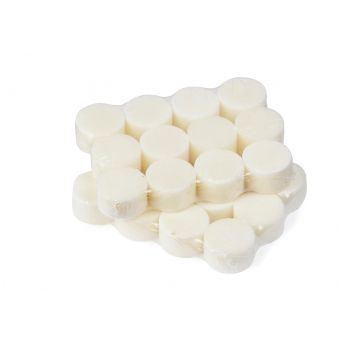 Hexamine fuel tablets are simple, ultra-lightweight compared to other options, and compact. The tablets burn smokelessly, have a high energy density, do not liquify while burning and leave no ashes. However, the fumes can taint food if it is exposed to the burning tablets, and will also leave a messy residue that may be impossible to remove from cookware. It is also highly inefficient as it is very susceptible to wind, there is no way of controlling the heat output which is not particularly powerful anyway and is relatively expensive when compared to other fuels. It does however have an indefinite shelf life if stored correctly and makes for an excellent back up or emergency heat source.
Hexamine fuel tablets are simple, ultra-lightweight compared to other options, and compact. The tablets burn smokelessly, have a high energy density, do not liquify while burning and leave no ashes. However, the fumes can taint food if it is exposed to the burning tablets, and will also leave a messy residue that may be impossible to remove from cookware. It is also highly inefficient as it is very susceptible to wind, there is no way of controlling the heat output which is not particularly powerful anyway and is relatively expensive when compared to other fuels. It does however have an indefinite shelf life if stored correctly and makes for an excellent back up or emergency heat source.
Advantages and disadvantages of various fuels for camping – needs work
| Fuel type | Advantages | Disadvantages |
|---|---|---|
| High heat output Spilled fuel evaporates quickly Readily available in the USA |
May produce sooty smoke Priming sometimes required, depending on the type of stove Spilled fuel highly flammable |
|
| High heat output Readily available internationally |
May produce sooty smoke Priming required Spilled fuel evaporates very slowly |
|
| Butane | Instant high heat output No priming required |
Lower heat output than white gas Canister disposal required High cost Poor performance in cold weather Potentially explosive |
| Propane | Better in cold than butane Larger containers refillable |
Limited availability High cost Canister disposal required |
| Alcohol | Quiet Clean burning Readily available |
May produce sooty smoke Lower heat output Longer cooking time Must be pre-heated in cold weather (not required for jellied alcohol ("Sterno")) |
| Unleaded automobile fuel | Inexpensive Readily available worldwide High heat output Spilled fuel evaporates quickly |
May produce sooty smoke Additives clog the stove Priming required Spilled fuel highly flammable |
| Wood (forest debris) | No carried fuel (weight) Free Readily available worldwide No toxic, spill, leakage issues |
May produce sooty smoke May require skill or additives to ignite when moist |
http://en.wikipedia.org/wiki/Camping_stove (includes pros and cons table) http://www.campingandcaravanningclub.co.uk/helpandadvice/gettingstarted/campingequipment/gas/
For barbecues
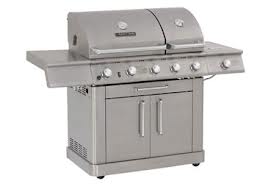 There are really only two fuels used for barbecues – LPG gas or charcoal. Please see the article specifically on barbecues for further information.
There are really only two fuels used for barbecues – LPG gas or charcoal. Please see the article specifically on barbecues for further information.
For domestic use
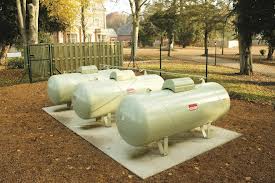 LPG gas is commonly used for heating and cooking in the home. There are 3 main alternatives – electricity, mains gas and oil. LPG gas and oil are both commonly used in areas where there is no mains gas supply. They are both stored in bulk tanks. Further information can be found in the article on bulk tanks.
LPG gas is commonly used for heating and cooking in the home. There are 3 main alternatives – electricity, mains gas and oil. LPG gas and oil are both commonly used in areas where there is no mains gas supply. They are both stored in bulk tanks. Further information can be found in the article on bulk tanks.
For motoring
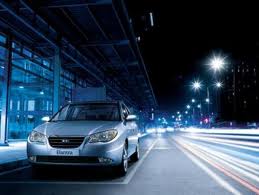 Worldwide there are over 16 million vehicles currently powered by LPG Autogas. However, this means there are nearly a billion vehicles powered by other means!
Worldwide there are over 16 million vehicles currently powered by LPG Autogas. However, this means there are nearly a billion vehicles powered by other means!
Petrol and diesel
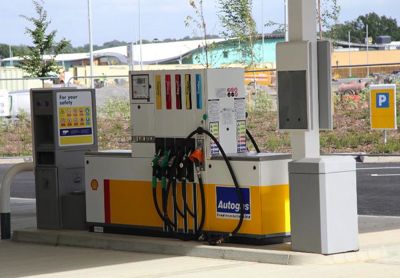 Petrol and diesel are the most common fuels to power vehicles. However LPG Autogas produces significantly fewer harmful emissions into the atmosphere, making it the perfect fuel choice for the environmentally aware. It is also approximately half the cost of petrol and diesel. Despite a slightly higher consumption when compared to petrol or diesel, the cost savings are still significant. There is further information about Autogas in a separate article.
Petrol and diesel are the most common fuels to power vehicles. However LPG Autogas produces significantly fewer harmful emissions into the atmosphere, making it the perfect fuel choice for the environmentally aware. It is also approximately half the cost of petrol and diesel. Despite a slightly higher consumption when compared to petrol or diesel, the cost savings are still significant. There is further information about Autogas in a separate article.
Electricity
Electric powered vehicles have been around since the 1890s but have never been that popular. They have several benefits over conventional internal combustion engine vehicles, including a significant reduction of local air pollution, as they have no exhaust. While they are very cheap to run the initial purchase price of an electric vehicle is considerably higher than comparable vehicles. Generating the electricity to run the vehicles can also cause pollution although some does come from renewable sources.
Biofuels
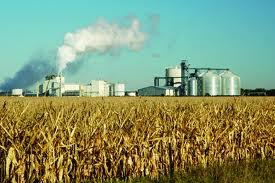 This term covers a variety of different types of fuel including biogas, biodiesel and bioethanol. Rotting food waste and sewage is turned into biogas and collected through a process called anaerobic conversion in a digester. Biodiesel is vegetable oil which has been processed to run in standard diesel engines. You can even use old oil from fish and chip shops to run your car! Starch or sugar is fermented and distilled to create bioethanol.
This term covers a variety of different types of fuel including biogas, biodiesel and bioethanol. Rotting food waste and sewage is turned into biogas and collected through a process called anaerobic conversion in a digester. Biodiesel is vegetable oil which has been processed to run in standard diesel engines. You can even use old oil from fish and chip shops to run your car! Starch or sugar is fermented and distilled to create bioethanol.
http://www.greenchoices.org/green-living/transport/alternative-fuels
Article Information
![]() The information provided in this article is for guidance only. Safety precautions and instructions should be used at all times and if unsure always seek professional guidance. Camping-Gas.com canot be held responsible for any information provided.
The information provided in this article is for guidance only. Safety precautions and instructions should be used at all times and if unsure always seek professional guidance. Camping-Gas.com canot be held responsible for any information provided.
